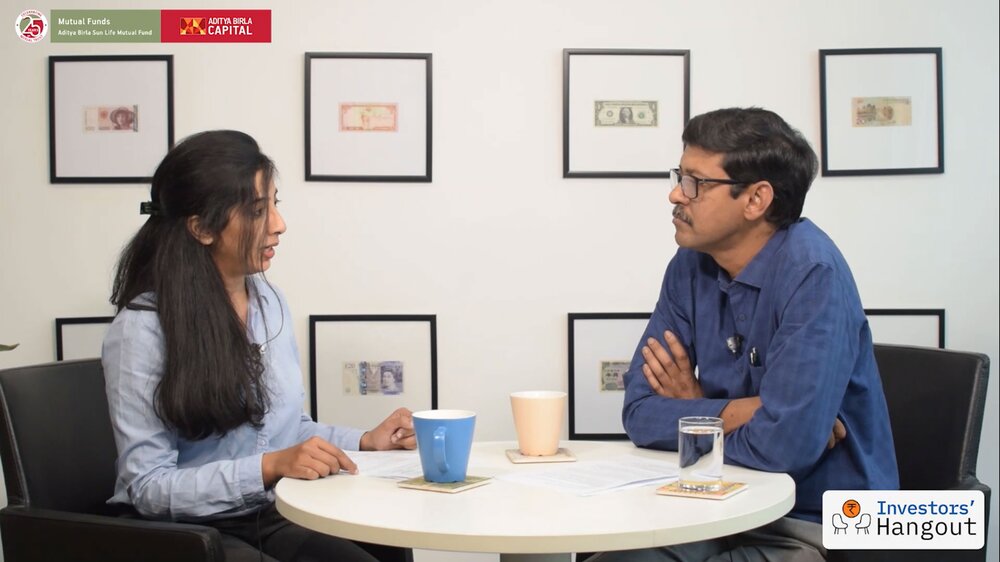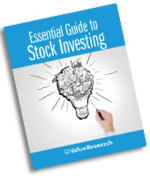Value Research Stock Advisor has just released a new stock recommendation. You can click here to learn more about this premium service, and get immediate access to the live recommendations, plus new ones as soon as they are issued.
Dhirendra, a lot of women in India play an important role in saving and managing the finances of their homes. What are your observations on this? And does this carry forward to investing as well?
Dhirendra: I don't know about investing. But yes, I find them to be more sensible savers, careful spenders, and mostly, they are also able to create the finest emergency fund. Based on my interactions, experiences and the instances I came across, during demonetization or at other times, I found them to be extremely good savers. They were able to build savings or carefully keep things which could turn out to be the emergency fund of the highest quality.
So I find them to be great savers and very sensible in their attitude to spending. But I don't know about investing. I don't think that they are at any advantage or disadvantage. They are just as vulnerable or as naive or gullible as men. It is just that, in modern times, with the financialisation of the investment world, I think they have less say in the whole thing. They're not asking too many questions. They are less exposed to investments.
It is reflected in the usage of Value Research Online. I was trying to look at the analytics to figure out how many users of Value Research are women. And it turned out just about 14 per cent.
If you could tell us a little about what are the benefits that women can get from investing? How can investing help them in their lives?
Dhirendra: Investing is a habit. And saving is not investing. Your money remains constant. In fact, it declines in value just because inflation keeps going up. So the worth of your money lying in the locker goes down in value over time. If you don't put it to work, it loses its value.
I had one unusual and a very inspiring experience which happened very long back. I came across a situation where somebody was investing for his maid. Some Rs 200 to Rs 300, which would have been around 5-10 per cent of her monthly salary, which he was paying. But this was in a hidden manner. Earlier, it was possible to invest for someone else in their name just by taking one signature. That carried on for many years and he periodically revised the amount. After six or seven years, the rules changed. Now you could not invest for someone else. That was the time when that maid had to open a bank account and she became aware of that money. It was in lakhs and quite significant for her. It turned out to be very empowering for that maid. I'll tell you how. As it often happens with the people in lower strata, the husband was a drunkard and once in a while would beat his wife. Just the fact of having that money gave her so much confidence that her husband could not beat her any longer. So financial empowerment is the only empowerment which women need, if at all they need empowerment. Everything else is hollow.
But if you could now talk about the question of why women tend to not invest. What are the particular hurdles that are stopping them?
Dhirendra: Not necessarily. Girls who are starting their career and getting into jobs, are forced to think about it.
But I would say, traditionally or conventionally, housewives were usually not involved in money matters. And she would have been just entrusted with the savings or the other income to be spent in course of time. And she'll be able to save something out of it, out of her own prudence. And of course, we are in a patriarchal society where men tend to control the resources. But things have started changing now. Women have started working. And many of them might just have an equal income stream in their family.
Also, it is not to be attributed to males or females. But I think it has to be attributed to the complexity of our financial system or the products which investors experience. They are being made complex. The toxic products look very appealing. And not so toxic products don't look that interesting. This often keeps people away from investing.
There is also something psychological about financial stuff. We come from a society where being frugal or being poor was glamorized. I come across a lot of people who take great pride in being financially stupid or in claiming to be financially stupid. They just say that they don't worry about money and care about it. But I feel that is not something to be proud of.
When it comes to women who do invest, what role do they have to get other women onboard?
Dhirendra: If you actually know something and have been able to build some framework of doing things better, I would always encourage. You are the privileged one. Spread the word. Spreading the word itself could be very empowering. Lots of people think that if you have to help somebody, you have to do some tangible help. This is an intangible help which will go a long way. And somebody will actually come and thank you. I can tell this from personal experience and with great pride. The biggest bonus of running Value Research is that I receive huge income in the form of thousands of people periodically writing about how they have achieved success with small inputs from us. And that is something which doesn't show in our balance sheet.
Now what if I am a women who is watching and I'm convinced that I must start investing. How do I get started?
Dhirendra: One is that start anyway. Because the biggest problem of investing is that we take very long to start. But before that, I would like to give the same financial framework which applies equally to both, men and women.
Have your emergency fund. Women can actually be more prudent in estimating the scale of their emergency fund. Buy adequate health and life insurance. All your savings and investment plan will go haywire if you have not thought about it.
And then decide what kind of money you would need in the predictable future, that is in about two to four years. It could be for your child's admission to school or for anything. That money could remain in a liquid fund or your bank account or a short duration debt fund depending on your time frame and the risk appetite. And all the money which you don't need for the next five years, just do a long-term SIP. Choose one equity-oriented fund and be regular with it. Even if it is not the finest equity fund, get started with it. If you have never invested in equity before, you can start with an aggressive hybrid fund.
Besides that, the primary thing which everybody should be doing is to resist the temptation of spending money. Because investing won't start till the time you save. And saving a little more in the initial years compounds beautifully. Understand the difference between 'need' and 'want'. I am not saying to compromise on the standard of living. Something which is a luxury to someone could be an essential for you. Do spend on it. But learn to resist those spending temptations which often happen due to easy available credit, that too on the things which you might actually not need. People are tempting you to spend. So just resist that temptation and I think a little resistance in the initial years will translate into far greater financial independence well ahead of time. If you have done these three to four things, I think you will be taken care of.
Click here to register for the forthcoming episode of Investors' Hangout and post your question for Dhirendra Kumar.









